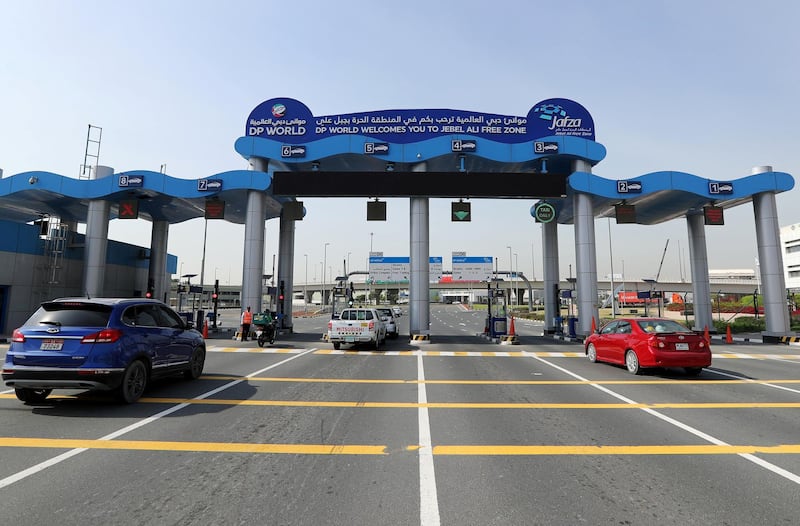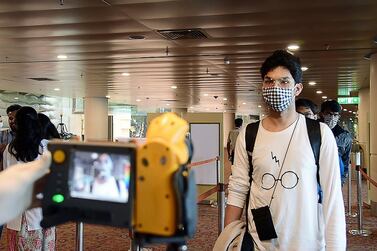Dubai, a regional business and tourism hub, saw a 6 per cent increase in non-oil foreign trade last year, spurred by activity at the emirate's free zones, government data showed.
The value of non-oil external trade rose to Dh1.37 trillion in 2019, up from Dh1.29tn in 2018, with gold emerging as the highest traded commodity by value, the Government of Dubai Media Office said in a statement on Saturday. Exports jumped 22 per cent to Dh155 billion, re-exports grew 4 per cent to Dh420bn and imports rose by 3 per cent to Dh796bn.
"Dubai's external trade has contributed significantly to the emirate's economic achievements, further raising its status as a global hub for trade, business and tourism," Sheikh Hamdan bin Mohammed, Crown Prince of Dubai and chairman of The Executive Council, said. "All government entities are working seamlessly together to provide the best services, facilitate trade and foreign investments, and further develop infrastructure across the emirate, especially at airports and free zones."
The emirate's non-oil trade grew in 2019 despite headwinds from a slowdown in global economic growth and weaker global trade. Global air freight demand plunged 3.3 per cent in 2019 compared to 2018, marking the weakest performance since the global financial crisis in 2009, according to the International Air Transport Association. Global trade grew just 0.9 per cent last year, dented by the trade tensions between the US and China, the world's two biggest economies.
However, Dubai's full-year trade volumes surged 19 per cent to 109 million tonnes in 2019, up from 91m tonnes in 2018.
Re-exports rose by a record 48 per cent to reach 17m tonnes, while exports rose by 45 per cent to 19m tonnes and imports grew by 9 per cent to 72m tonnes.
Dubai’s foreign trade out of free zones in 2019 was "a major contributor" to the overall increase, accounting for Dh592bn, an 11 per cent increase year-on-year, according to the government data. Direct trade rose 2 per cent growth to reach Dh770bn.
“Free zones in Dubai are a key factor behind the emirate’s trade success," Sultan bin Sulayem, DP World group chairman and chief executive, and Chairman of Ports, Customs and Free Zone Corporation, said.
DP World, which operates ports around the world from Australia to Peru, is returning to full state ownership as it focuses on its medium-to-long-term strategy of becoming “the world’s leading logistics provider".
In terms of trade with other countries, China remained Dubai’s largest trading partner, contributing Dh150bn. India was the second-biggest trading partner with Dh135bn, followed by the US with Dh77.7bn and Switzerland with Dh60bn.
Saudi Arabia remained Dubai’s largest Arab trade partner. The country was the emirate’s fifth-biggest partner globally, contributing Dh56bn.
The highest traded commodity by value in 2019 was gold, jewellery and diamonds, which contributed Dh370bn, growing 7 per cent year-on-year.
Dubai "is progressing steadily" towards its trade target of Dh2tn by 2025, Sheikh Hamdan said. The emirate is gearing up to host the Expo 2020 world fair in October for six months that it hopes will stimulate foreign investment, trade, tourism and economic growth.
"Hosting mega-events such as Expo 2020 will provide opportunities for the international trade sector to explore new possibilities and expand growth," he said.








